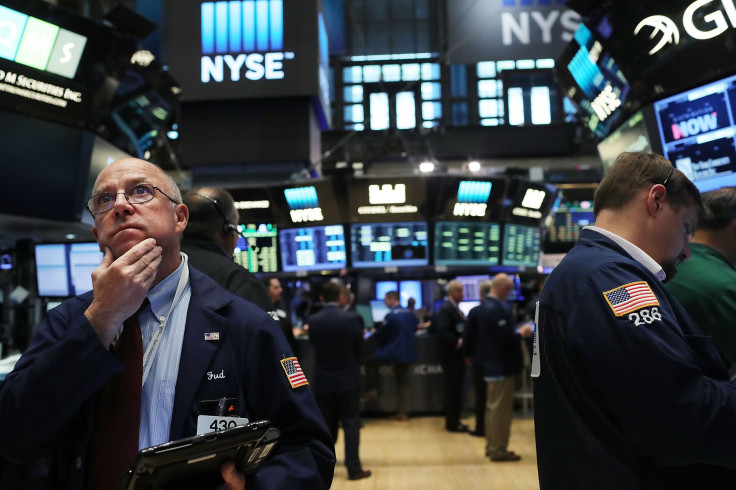Dow Jones Industrial Average Slumps Again As Investors Absorb More Brexit Shock

This story was updated at 4:20 p.m. EDT.
Wall Street fell sharply Monday, extending Friday's huge losses, in the aftermath of a shock vote by Britons to leave the European Union. Monday's slump led major U.S. stock indexes to their worst two-day swoon in about 10 months.
Leading stock indexes lower for the second straight day was the financial sector: The S&P financial index fell 3 percent as uncertainty over London's future as the region's finance capital lingered.
JPMorgan fell 3 percent, while Bank of America was down 6 percent. The stocks were among the top losers on the Standard & Poor’s 500 index.
Earlier, European stocks were hammered for a second day, and the sterling fell more than 2 percent. The European banks index Monday hit its lowest since July 2012.
The Dow Jones Industrial Average was down 261 points, or 1.5 percent, at 17,140 by the close of trading, having finished Friday with a loss of 610 points, or 3 percent. It was down 334 points at the low point of the session.
Other major stock indexes also plunged, including the broader S&P 500, which fell 37 points, or 1.8 percent, to 2,001. The Nasdaq composite, which includes many tech names, slid 114 points, or 2.4 percent, to 4,594.
The sell-off Friday eroded $2.08 trillion in market capitalization globally — the biggest one-day loss ever, according to Standard & Poor's Dow Jones Indices, trumping the Lehman Brothers bankruptcy during the 2008 financial crisis.
U.S. Treasury Secretary Jack Lew, however, said the market impact from Brexit had been orderly so far and there were no signs of a financial crisis arising from the vote.
"There is a crisis of confidence in the markets," said Todd Morgan, chairman at Bel Air Investment Advisors in Los Angeles. "But there is a lot of cash lying around and interest rates are low; the world will survive."
European stocks were down again Monday, and the sterling fell more than 2 percent. In Asian markets, stock indexes were mixed, with Japan's Nikkei rebounding after Friday's 7.9 percent fall. Other Asian indexes, such as Hong Kong's Hang Seng, were lower.
The dollar was set for its best two-day percentage gain since 2008, dealing a blow to U.S. companies that get a large portion of sales from overseas.
Uncertainty surrounding when and on what terms Britain will end its EU membership is expected to fuel volatility in the next few weeks. U.K. Finance Minister George Osborne spoke Monday in a bid to provide reassurance of the nation’s financial and economic stability following the Brexit vote, saying the U.K. is facing the future “in a position of strength.” Separately, Britain's ruling Conservative Party said a new leader of the party and British prime minister will be appointed by Sept. 2 at the latest.
The British Brexit vote, which Federal Reserve Chair Janet Yellen had said would have significant repercussions on the U.S. economic outlook, is expected to reduce the Fed's ability to raise short-term interest rates.
Traders see no chances of a rate hike in July and September, and have priced a meager 1.9 percent bet on an increase in November, according to CME Group's FedWatch tool.
Yellen is no longer due to speak at the ECB Forum on Central Banking starting Monday, the second high-profile defection after the Bank of England's governor pulled out after the vote.
Oil prices steadied but were still in the red Monday as analysts said Brexit would have a limited impact on global fuel demand.
Reuters contributed to this report.
© Copyright IBTimes 2024. All rights reserved.





















